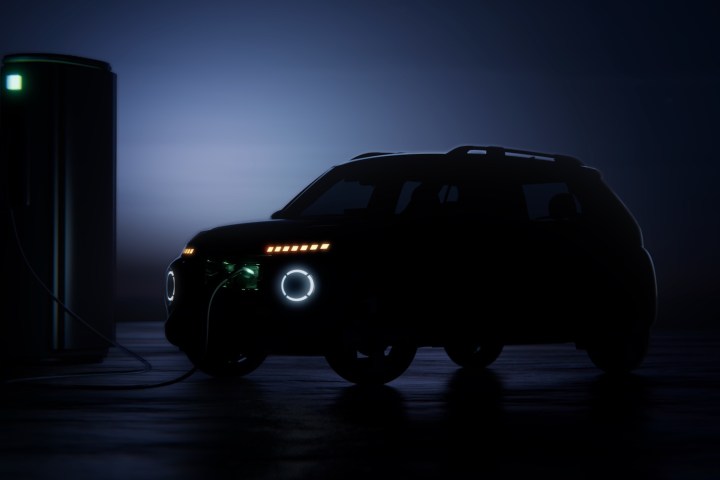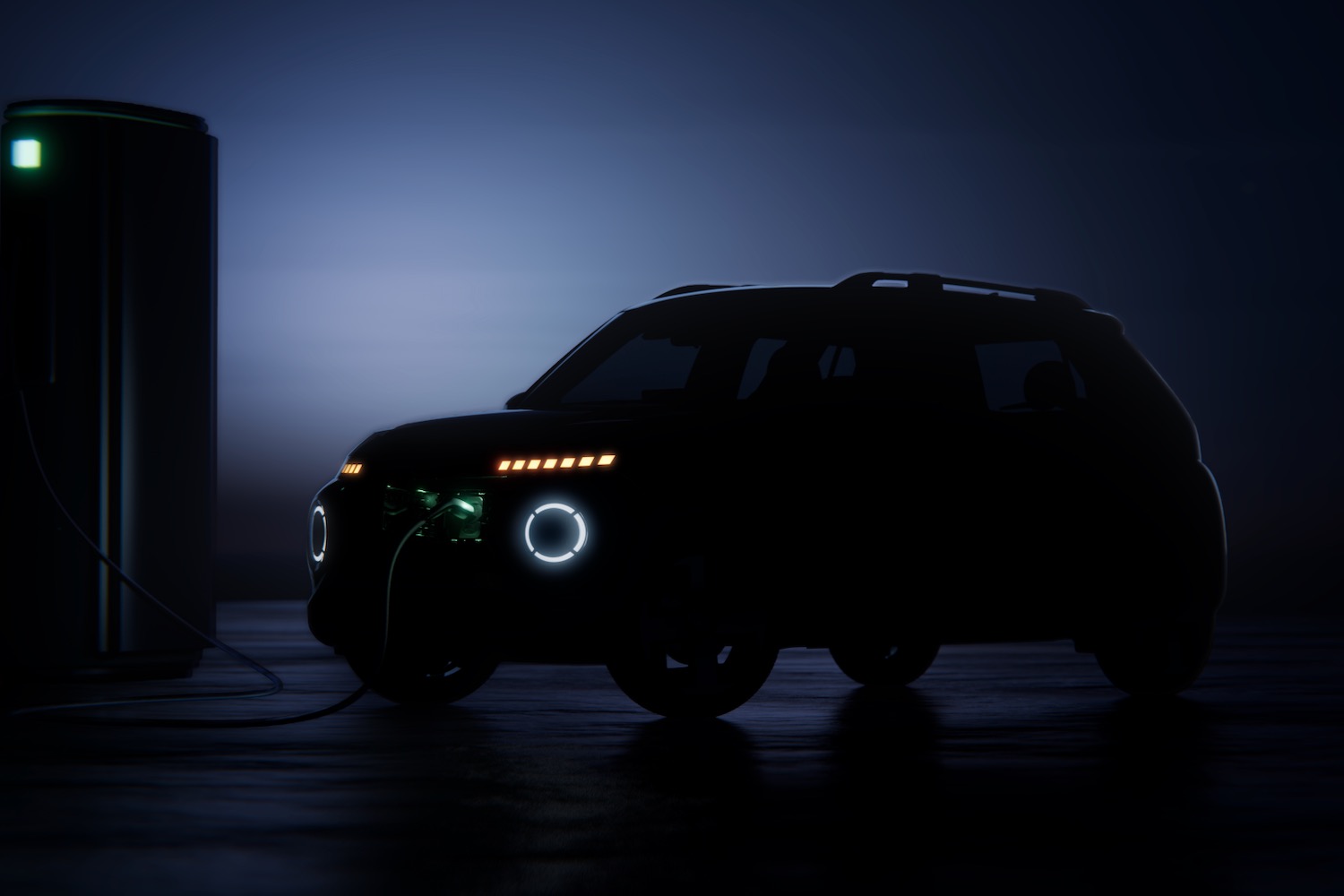
Automakers are announcing lots of new EVs, but affordable models are unfortunately rare. Hyundai is bucking the trend toward bigger, pricier models with the Inster, a subcompact electric SUV scheduled to debut at the Busan International Mobility Show in South Korea later this month.
Named after the words “intimate” and “innovative,” but also throwing back to the old Hyundai Veloster, the Inster will be one of the smallest EVs in Hyundai’s lineup. However, it will offer more extensive technology and safety features than buyers typically expect in this class, according to a Hyundai press release. The automaker also promises up to 220 miles of range, as measured on the European WLTP testing cycle. That likely equates to a sub-200-mile range with the testing procedure used in the United States.
Hyundai isn’t ready to fully reveal the Inster, but teaser images hint at some interesting styling elements. Split headlights feature thin horizontal upper and large round lower elements, while the taillights have the same pixelated look as those on the Hyundai Ioniq 5. The Inster also has a boxy profile not unlike the current gasoline Hyundai Venue.
The Inster may not make it to the U.S., though. Hyundai considers this an electric evolution of the Korea-only Casper (it will be sold as the Casper Electric in that country), and the styling has some similarities to that model. The Casper is much smaller than any Hyundai currently sold in the U.S., which makes any electric derivative a long shot for this market.
For now, the Hyundai Kona Electric is one of the least-expensive new EVs currently sold in the U.S. Pricing starts at $34,050 for a base SE model with a 48.6-kilowatt-hour battery pack affording 200 miles of range. The Kona Electric currently undercuts other entry-level EVs like the Volkswagen ID.4 and Kia Niro EV. The Nissan Leaf is cheaper, but only if you opt for the 40-kWh S base model, with 149 miles of range.
Other affordable EVs are on the way. The Kia EV3 is a small SUV rumored to likely reach the U.S. in 2025 with a relatively low base price. And the Chevrolet Bolt EV is getting a reboot using General Motors’ latest Ultium battery architecture.







